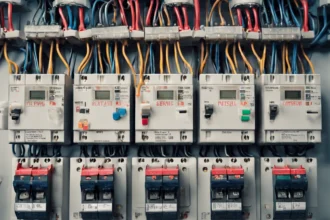Robotics and automation have undergone a significant transformation over the past decade. With advancements in Artificial Intelligence (AI) and machine learning, robots are becoming more intelligent, agile, and autonomous. These robots are revolutionizing industries ranging from manufacturing and healthcare to transportation and agriculture. In this article, we will explore the evolution of robotics and how AI is advancing the field of robotics and automation with Provectus.com.
The Early Days of Robotics:
The origins of robotics can be traced back to the early 1950s when George Devol developed the first industrial robot, the Unimate. This robot was primarily used for assembly-line work in the automotive industry. However, it was not until the 1980s that robots began to evolve into more intelligent machines with the development of the first programmable robot by KUKA Robotics.
The Emergence of AI in Robotics:
With the advent of AI and machine learning, robots have become more intelligent and capable of performing complex tasks. AI-enabled robots can perceive, reason, and learn from their surroundings, making them more adaptable and versatile. The integration of AI has also led to the development of collaborative robots (cobots) that can work alongside humans, increasing productivity and efficiency.
The Growth of Industrial Automation:
The integration of AI has transformed the field of industrial automation. Industrial robots are now being used to perform a wide range of tasks, from welding and painting to packaging and assembly. The use of industrial automation has led to increased productivity, efficiency, and cost savings, making it an essential component of modern manufacturing.
The Rise of Service Robots:
AI-enabled service robots have also emerged in recent years, offering a wide range of applications in healthcare, hospitality, and entertainment. Service robots can assist with tasks such as cleaning, food delivery, and patient care. They are also being used to enhance customer experiences in retail and hospitality, providing personalized service and entertainment.
The Future of Robotics and AI:
As AI and robotics continue to evolve, the possibilities for their applications are endless. Future advancements could include robots that can operate autonomously, make decisions based on complex data QA analysis, and interact with humans in more natural ways. The integration of AI and robotics could also lead to the development of new industries and job opportunities.
However, as with any new technology, there are also concerns about the impact of AI and robotics on society. Some worry that automation could lead to job losses, while others fear the development of autonomous weapons and other dangerous applications. As such, it is essential to consider the ethical implications of these technologies and work to ensure that their development benefits society as a whole.
Conclusion:
In conclusion, the evolution of robotics in data QA and automation has been greatly influenced by advancements in AI and machine learning. These technologies have transformed the field of robotics, making machines more intelligent, adaptable, and versatile. As we look to the future, the possibilities for these technologies are endless, but it is important to consider the ethical implications and work to ensure that their development benefits society. Ultimately, the integration of AI and robotics has the potential to revolutionize industries, create new job opportunities, and enhance the quality of life for people around the world.








